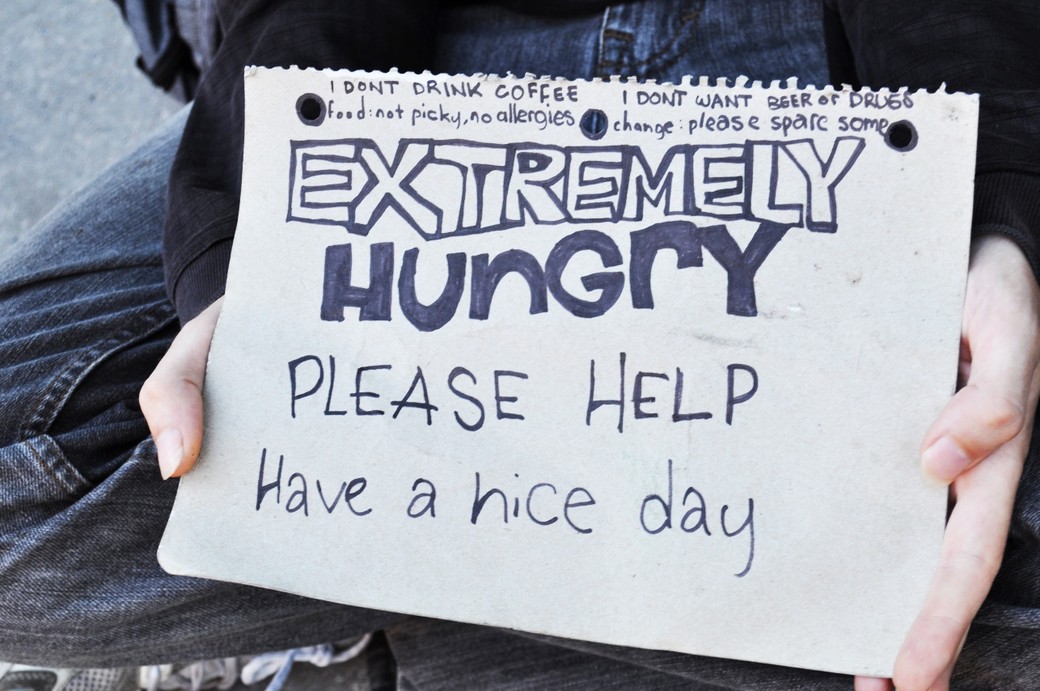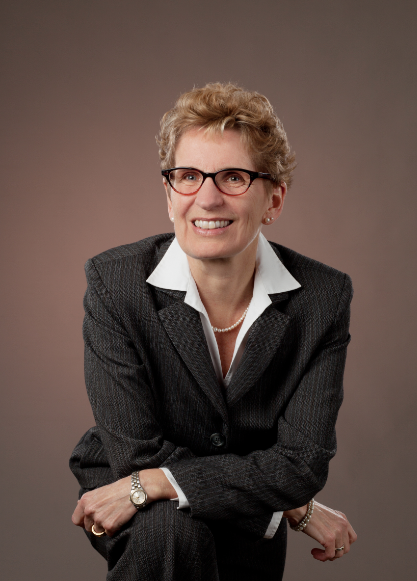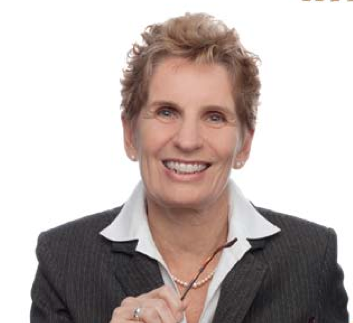
Youth on the Streets: Anything but Hopeless
Kevin Belisle begs for money and attention.
He sits on Bank Street, holding a carton that reads, “Extremely hungry. Please help.” In his backpack: high school equivalency, a criminal record and a dirty jacket.

Belisle, 23, doesn’t have a permanent address or a job. For a living, he paints walls, does yard work and helps people with moving. When he doesn’t have a job, he begs for money on the streets. At night, he couch-surfs at one of his friends.
Belisle is not the only one with such living arrangements in the nation’s capital. There are many more stretched hands with youthful eyes, looking up–still full of hope and full of life.
The question is, how many of them are there?
The research by the Homelessness Partnering Secretariat (HPS) estimates between 150 and 300 thousand individuals experience homelessness in Canada every year. Nearly every fourth homeless person is a youth under the age of 25.
Last year, roughly 1400 youth stayed in Ottawa’s shelters. This number, however, is not a true reflection of youth homelessness, says Mike Bulthius, the executive director of the Alliance to End Homelessness Ottawa (ATEH).
Bulthius says there are many more youth without stable housing. They are not visible, because they, like Belisle, can wander from relatives to friends without reporting their homelessness. He says research indicates the population of homeless youth is at least double of the known.
The causes of youth homelessness are similar to that of adults, Bulthius says. The difference is that youth come from somebody’s care: whether it’s a family, a community or the government.
“Breakdown of the family is the key. A lot of them are living in family situations that are not positive for them,” Bulthius says. “Whether it’s a history of abuse or rejection by a family–a number of youth come from foster care and group homes.”

Belisle says, this is what happened to him.
His parents divorced when he was six-years-old. He bounced between different foster families, group homes and shelters. Sometimes, he spent weekends with his father, where he says he felt unwelcomed by his stepmother.
When he turned 16, Belisle decided to live on his own. He worked at different minimum wage jobs, but he could never afford his own place.
Lack of affordable housing is another issue that weighs on youth homelessness, says Stacey Lauridsen, the director of Community Services at the Youth Services Bureau (YSB). Today, in Ottawa, there is a shortage of safe affordable housing in general, especially for youth, he says.
“If you are an at-risk youth trying to find affordable private market housing, you are facing stigma, marginalization, along with the need for specific supports–it’s just not there,” Lauridsen says.
Michel Overlette, 25, who panhandles on Bank Street, knows what barely affordable housing is.
In fact, he says, he is on the verge of becoming homeless. Overlette says he lives in a house on Preston Street. He shares the rent with his girlfriend and his friend.
“We try our best to make ends meet, but sometimes it’s hard,” Overlette says.
 His income comes from construction jobs, he says. But, there are days when he doesn’t have any job. The rent comes up, unpaid bills pile up on the table, and the refrigerator gives a hollow sound. Overlette says he has nothing to do but to panhandle.
His income comes from construction jobs, he says. But, there are days when he doesn’t have any job. The rent comes up, unpaid bills pile up on the table, and the refrigerator gives a hollow sound. Overlette says he has nothing to do but to panhandle.
“It’s not that I can’t spend money properly, it’s because they [employers] don’t give me enough work to pay rent. They just make you have enough to live–that’s what it is,” he says.
Over the last few years, Ottawa has made positive steps towards supporting homeless youth.
In 2013, the City of Ottawa passed a 10 Year Housing and Homelessness Plan. According to the plan, the city promises to build 130 new units and renovate 200 homes for low income and homeless people by the end of 2015.
YSB has a youth drop-in center; runs a youth-health clinic, has a range of mental health and employment services and provides special programs for specific youth populations such as at-risk young women, Aboriginal youth, LGBTQ youth and new immigrants.
Two years ago, YSB partnered with Canadian Mental Health Association to introduce an Intensive Case Management (ICM)–a program that works with youth experiencing serious mental issues. The program allocates case managers to help youth find housing, education and other support programs.
“While the programs we offer have proved to be effective, they currently can’t be expanded without additional funds,” says Lauridsen.

As a nonprofit and a charity, YSB depends on government, corporate funds and public donations. Right now, the organization’s ICM program is funded for just four intensive case managers, who are working with over 40 youth with severe mental illnesses.
To end youth homelessness, Lauridsen says, Ottawa must develop a strategy including government, communities and youth.
“We need youth voice in what works to resolve homelessness. To understand youth, we need to listen to them and ensure they have their say in the process and strategies that affect them,” he says.
If anyone wants to listen, Belisle is ready to give his voice. He says there is only one feeling homeless people experience on the streets: I can’t do anything.
“Because no one is going to listen, no one really wants to listen,” Belisle says.
When asked what he would say, Belisle simply replies: “Give me a job.”
Homeless youth may not have great expectations, but they still have hopes.
Belisle dreams about writing a book about creation of a new world. He says, this world will be the world of opportunities and challenges that people can overcome by always choosing to do something right.
In his world, he says, people will all live together.
Overlette is also drawing his future plans.
He says, he would like to start a construction company to help people with painting, redecorating and building. Then maybe, he says, his dream will come true.
“My dream is to own a house, so I can live amongst everybody else,” Overlette says. “I am only 25, and I know, there is more to future than it is now.”
Belisle agrees. “You can never have too many dreams.”
On November 21, join the community in Sleep Out for Youth Ottawa event to raise funds to take youth off the streets.











